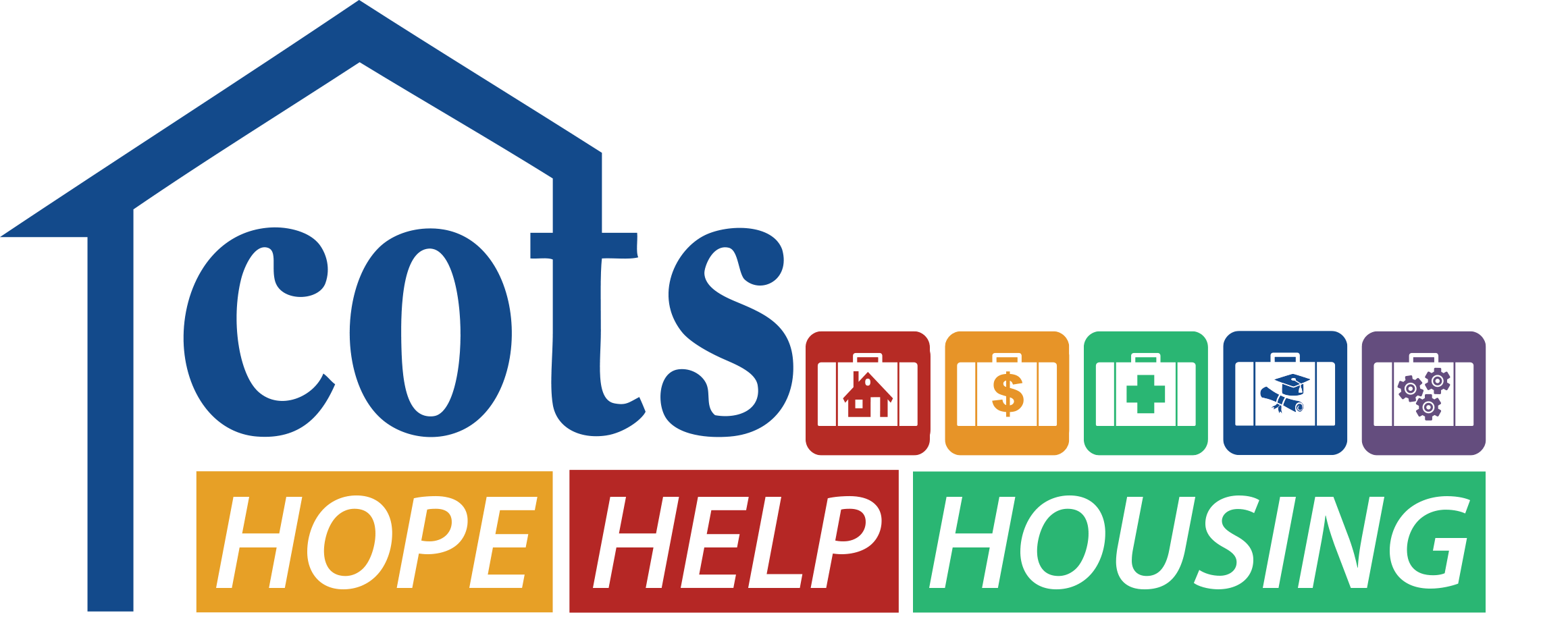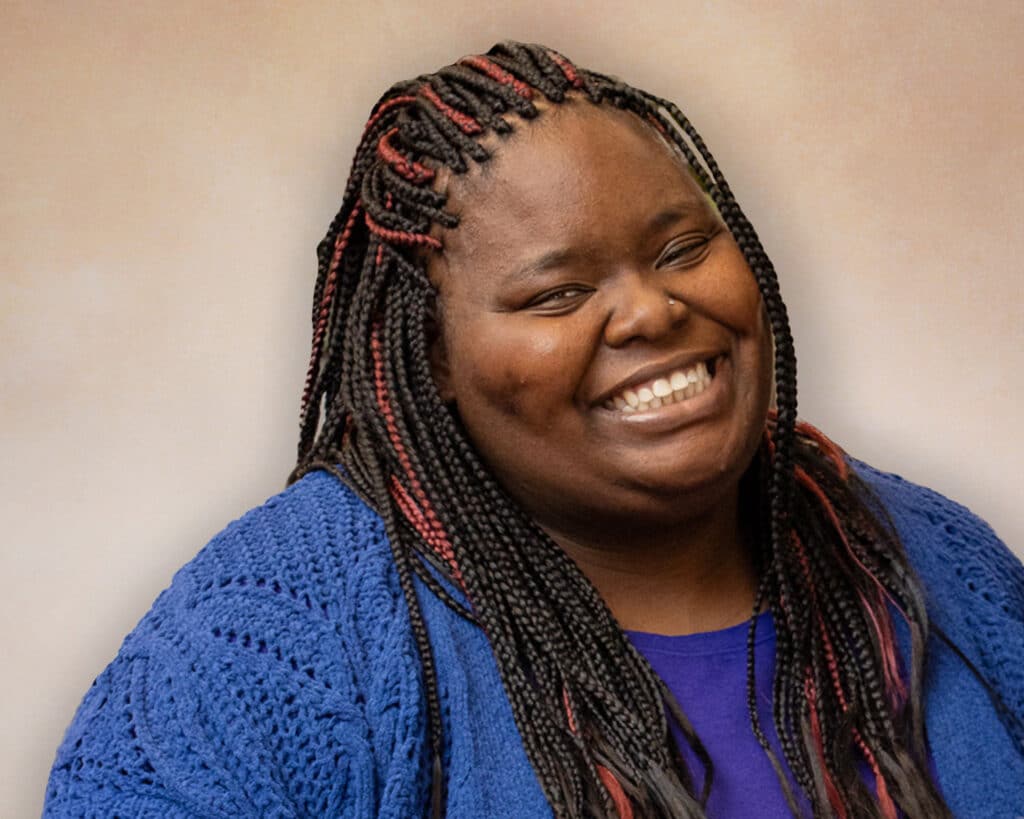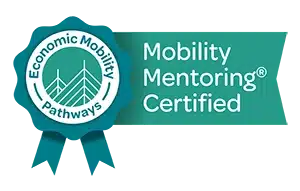Tell us about yourself.
My name is Amber Hinton. I am 30 years old. I am a dialysis technician at Henry Ford Health. Currently just still trying to figure out this life thing. Because life is a lot you know. I always wanted to be in healthcare. I went to The University of Michigan -Dearborn for my undergrad, and I did Biological Sciences under the pre-med track. So my next step is medical school.
How did you get introduced to COTS?
During college, homelessness was already kind of happening for me. My story goes back to losing my mom. I lost my mother in 2013. During that time, we were still living in my grandmother’s home, but outside family, figured out a way to get control of taxes on the house and her finances and stuff like that so there was a point where the taxes got maybe $300 behind but by the time myself and my aunt found out about it it’s like over $9,000.
I was trying to go to school, but now I really need to find a job so I can work. My aunt is trying to work, and we’re just doing the best we can together. Ultimately the best wasn’t good enough because we eventually got foreclosed on the house. I think the most heartbreaking part of it was the fact that pretty much everybody spent their whole life there.
My grandmother and grandfather worked so hard to get that home. So to get to the point where there was nothing that we could do to save it, even with all the programs they offered, nothing was falling in place. It was a headache. It was a big nightmare. To this day we still never really figured out why it didn’t work, but I had to turn that negative into a positive and just say you know what the Lord don’t make mistakes.
So we ended up going into a hotel, which was supposed to be for a couple of months. I was not expecting more than a couple of weeks, but those months led to a year and then next we looked up and it’s been three years in the same hotel. We ended up at COTS because we got to the point where we just had no choice. We can’t just be out here sleeping in the car. This child needs something. So I went down to Porter Street. They have you fill out these forms, and they want to know about your background. They recommended COTS. So I said, okay. And I didn’t know what to expect. I didn’t know how to feel. The only thing I knew about shelters was what I saw in the movies. And I just had the worst vision. I felt like a failure. Because like, all this is happening as soon as I graduate from college. The time I feel like I’m supposed to be celebrating and enjoying my life. I’m supposed to be happy. This is a big accomplishment.
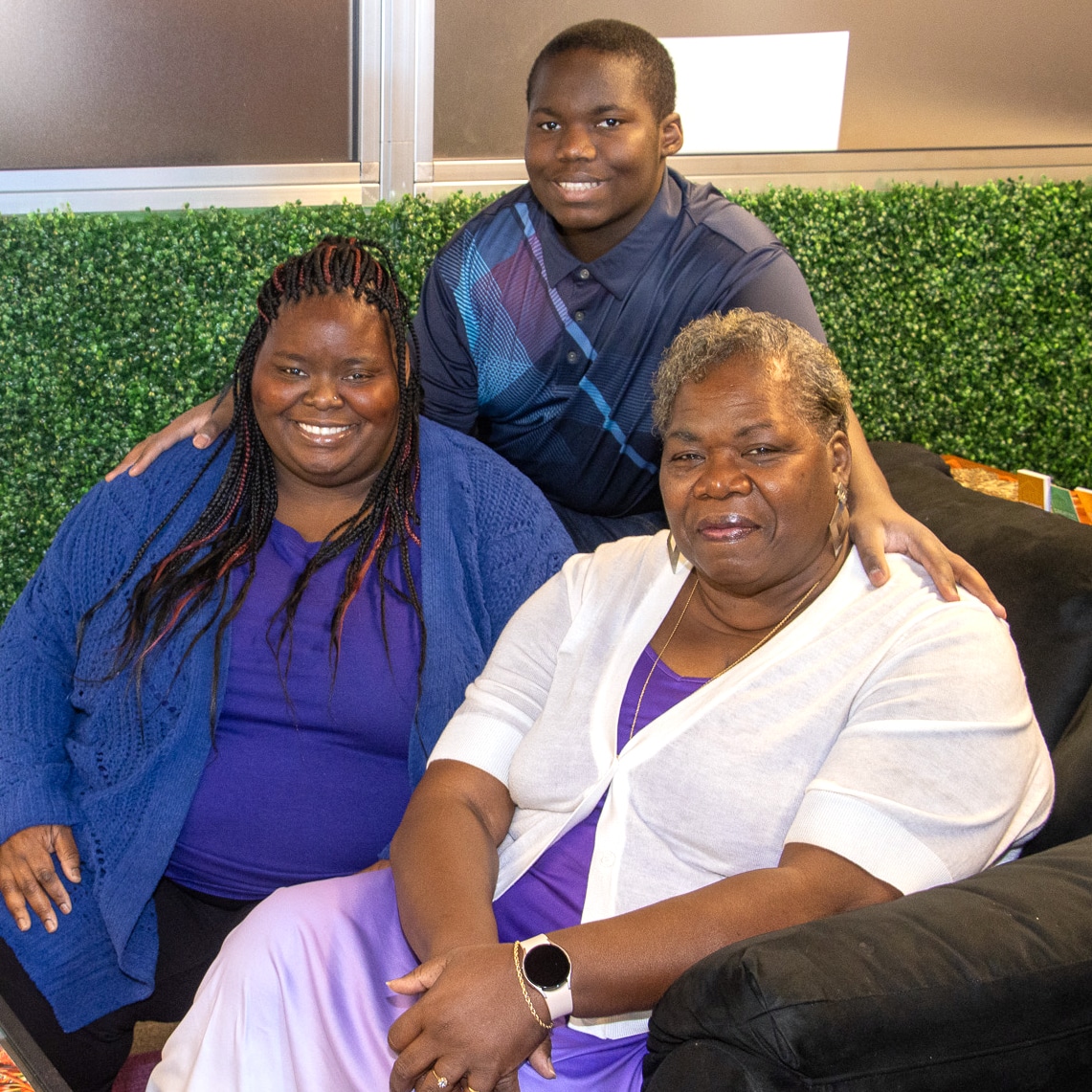
Tell us about your coaching experience with COTS. How did you get introduced to the Passport to Self-Sufficiency?
Ms. Walker was one of the best things that happened to me. She was really. She was a great coach to me, a great, great coach, great person, just genuine, real. And she didn’t act like, oh, well, you know, you are in this situation, so you know, you are less than. She still treated me like a human.
Could you share your favorite achievement because of COTS?
To finally get a yes on house and actually be able to move. That in itself right there is a big achievement for me because I’ve always lived with family. I’ve never had anything with my name on it. It was never mine. And to be able to sign my own lease and I’m paying my own bills… People hate bills and don’t know why. It’s exhausting sometimes, but I’m happy to be able to pay bills. I’m happy to be able to say, okay, I can do this. This is for me and my family.
What are your long-term goals? What are you looking forward to next?
Long-term. Medical school. I’ve been told by my mentor that this is my last year to put off my MCAT. So. Let’s do it. I have to do this MCAT. I know what schools I want to apply to. It’s just now about getting into them.
Another goal is to see my brother get through school, to see him successfully graduate.
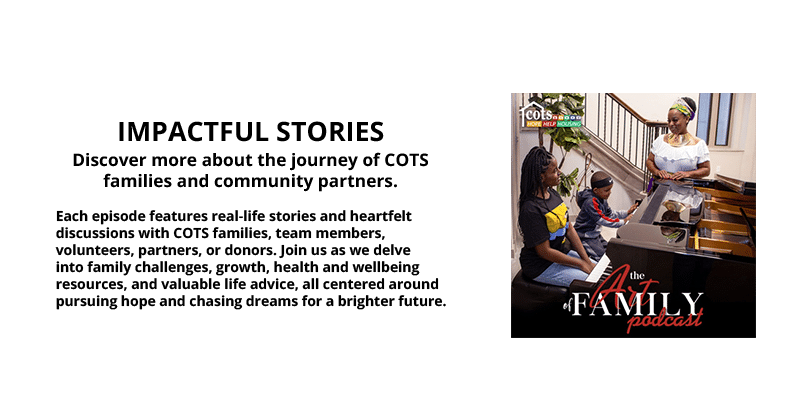
What do you hope to share with people?
It’s okay. It’s okay to, one, not to be okay. It’s okay to fall, and it’s okay to, in that moment, be hurt. You might be broken. But then you need to turn around, and you have to pick yourself back up, and pick up the pieces. That puzzle may not look the way it did the first time. It may be a little off somewhere. But pick up the pieces, put them back together. Keep pushing. I know for me, my biggest thing was I knew that I had to push for that child. I know that I’m going to forever have my mom’s words in my head.
Asking me if anything happens to me, are you gonna look out for your brother? Can you be there for your brother? So her words, his face, and my faith are really what kept me and pushed me. I want people to know that no matter how dark it seems, no matter how bad things are, they can twist that negative and turn it into a positive. Find something positive in the negative because that one positive thing you find may be the thing that’ll boost you up and encourage you to keep going and keep pushing. And just know that you can do it, no matter how long it takes, no matter how rough the battle.
What are a few common misconceptions about homelessness that you would like to address or change?
One of the biggest misconceptions about homelessness that I’ve seen, even I’ve been guilty of it is you think people become homeless just because they’re not taking care of their business. They’re not doing what they’re supposed to do. They’re working, but they’re being frivolous. They’re not making sure the home is taken care of. That was one of my misconceptions. That was how I used to feel. I used to say like, like how are they out here like this? Like they dress better than me out there. And they asking me for money.
I used to think if you did what you were supposed to do the first time, you wouldn’t be in the situation. But as someone who actually experienced it, I see that truly things can happen. I think as people we just need to be a little bit more compassionate before we decide that we want to judge anybody or anything that we see.
Take a moment and just get to know. Judge the book by its cover, you don’t know. You don’t know the story until you open the book up and start reading the pages. So I just believe that’s something that needs to change as far as the stigma with homelessness. Find out. Be compassionate and find out.
What do you believe are the most effective ways for individuals or communities to support people who are experiencing and overcoming homelessness? What would you like to see more of?
So I think community-wise, I would like to see us do more of those drives, like where you give away food baskets and hygiene kits.
I feel like we honestly need more shelters. I don’t think there are enough out there. Because we still have people out on the streets. Not just shelters, we need shelters that are in place to actually help people, help get people on the right track like COTS. COTS is a shelter that accepts you where you are, and they take you through the steps to transition.
Some shelters are just that, they’re just a shelter. You just come, you have a bed, eat maybe, yeah possibly eat. And then you’re out the next day, you just have to get out. And then it’s a lot of first come, first served. We’re in dead winter. We should have more shelters where people can go and they can stay. And then…
You groom them up, you get them together. If they come in a little scruffy, let’s clean them up. Let’s get you together. Let’s try to get you interview ready. Let’s get some clean clothes on. Prior to you being homeless, what did you do? What were you good at? What are some hobbies that you may have had? That’s us being compassionate and having empathy and getting to know the person and trying to help that person along.
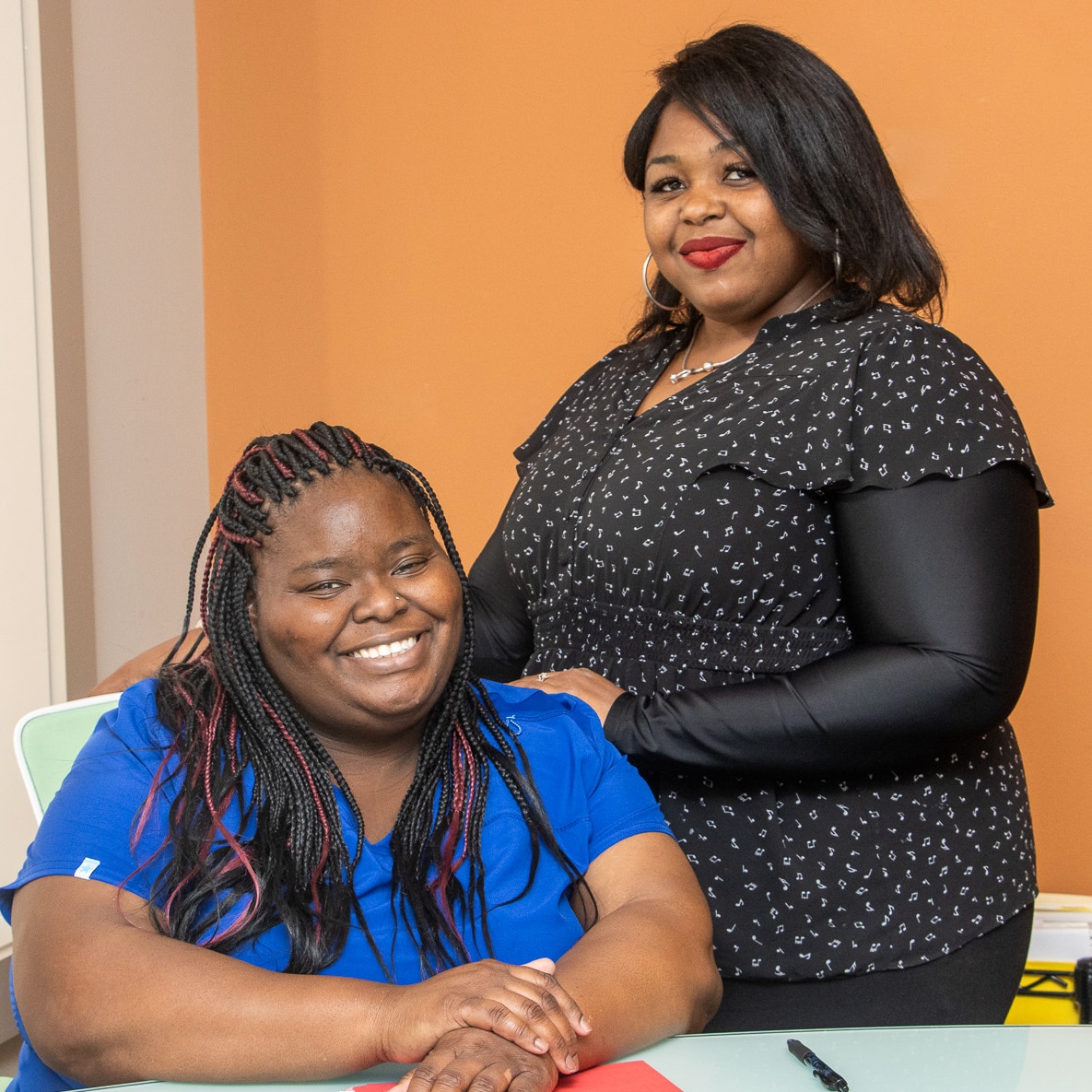
Tell us more about the Empowerment Plan and the program.
So Empowerment Plan is a unicorn to me. I have never seen a job like that.
To have a job that cares. Like oh, I don’t have a babysitter today, so I can’t come in. Any other job, be like, I can’t help you with that. You gotta get in this job or don’t come back. Empowerment was helpful with that. They meet you where you are, and they want to give you the resources and the tools to better yourself, to move you on.
And they care. Like that job truly cares. If you don’t have your license, they’re paying for you to do driver’s training. They’ll help you get a car. I was gifted a car through them.
If you want to go to college they allow you to work. You do part-time where you work here and part-time where you are in class.
They want to take care of your mind, body, and soul. So we did meditation. We did yoga. All together there. They have so many programs. They eventually got counselors. They realized there was a need for counseling. A lot of people have a lot of stuff going on. You know, so counselors came in. That was helpful.
COTS led to Empowerment Plan and Empowerment Plan embodied all of that. And it’s just amazing to see how everything came together.
